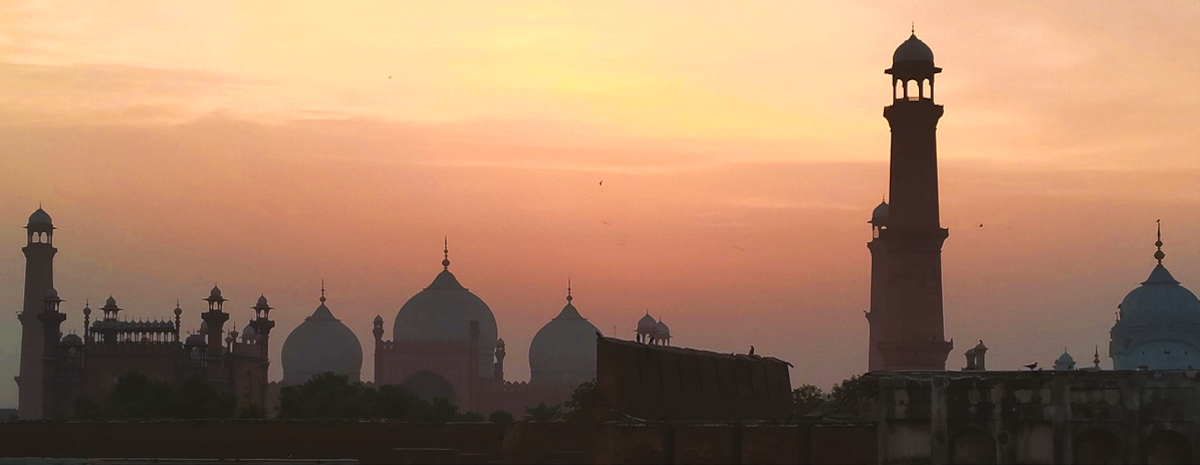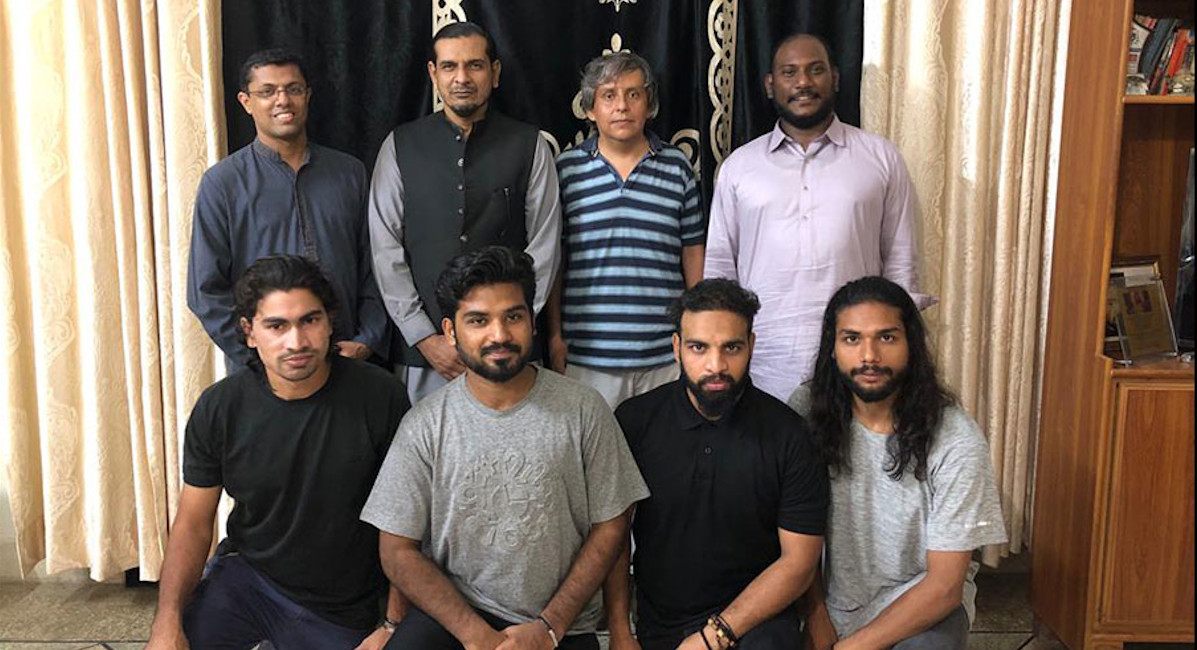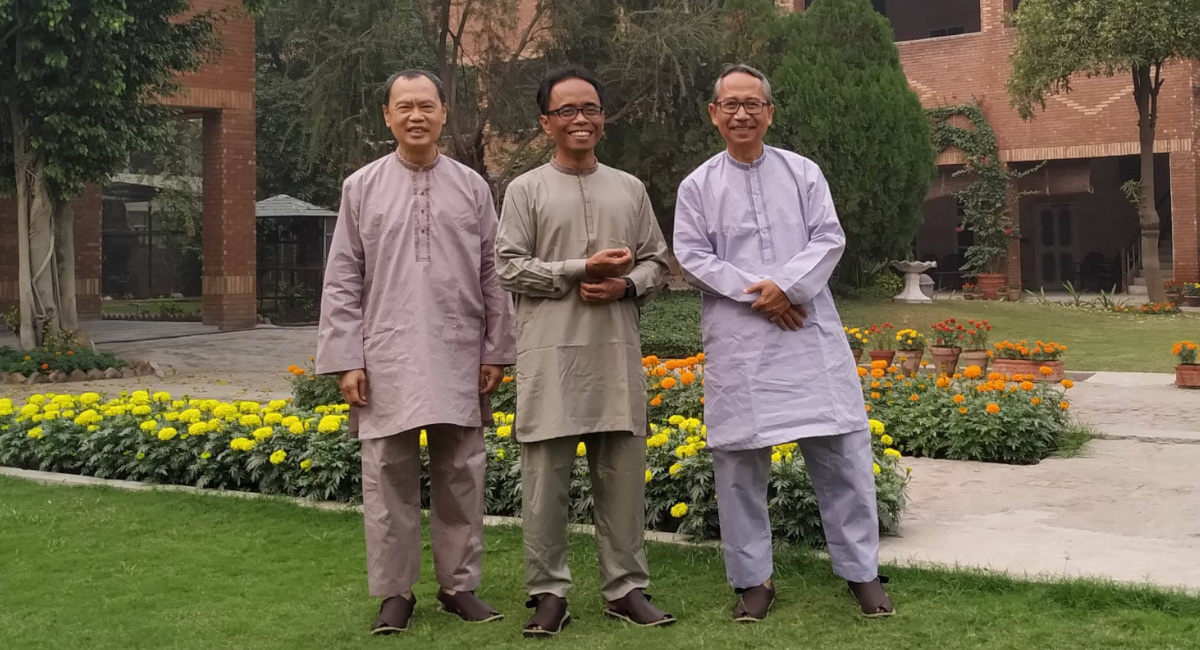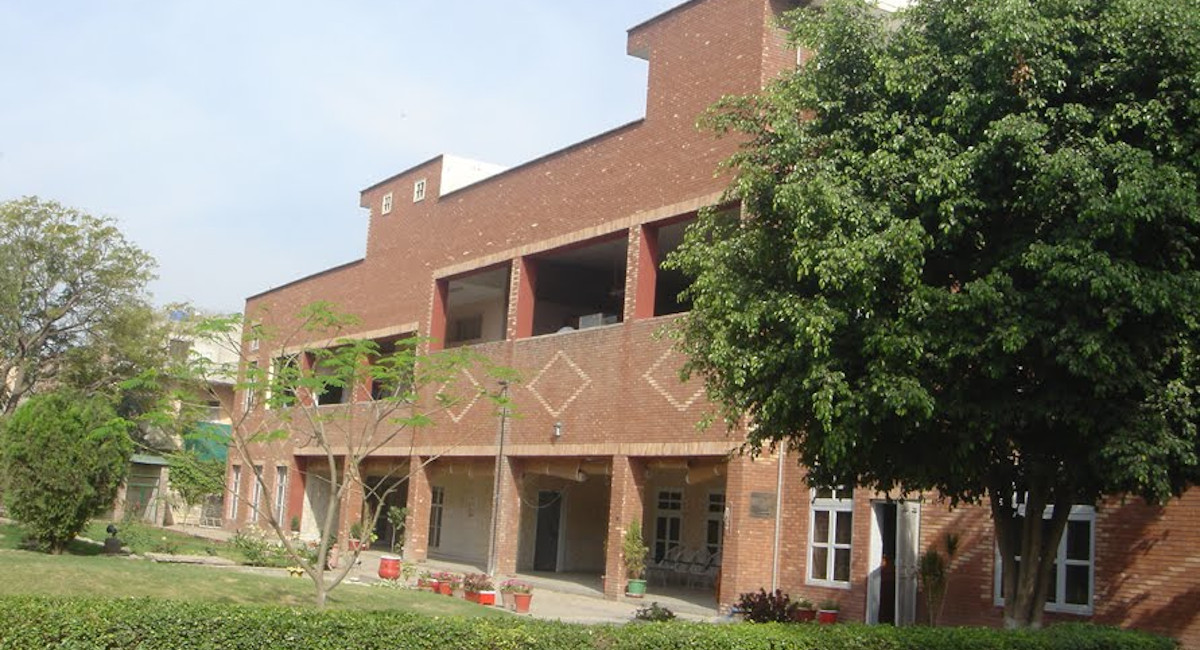
The decision to transfer the Pakistan Mission from the Sri Lankan Province to JCAP was a result of a discernment process initiated by the request of Sri Lankan Provincial Fr Angelo Sujeewa Pathirana. The Sri Lankan Jesuit Province had been accompanying and assisting the Pakistan Mission since the 1970s. In recent years, however, challenges have arisen that made it difficult for Sri Lanka to support the mission in Pakistan. Travel from Sri Lanka to Pakistan has been severely restricted, and finding Jesuits to serve in the mission has become difficult due to the acute shortage of Jesuits in Sri Lanka.
As part of the resolution in the July 2022 Major Superiors Assembly, JCAP along with the Indonesian Province commenced the process of discernment. In late October to early November, a small delegation from JCAP consisting of Fr Moreno, Indonesian Provincial Fr Benny Juliawan, and his Province Consultor Fr Kuntoro Adi travelled to Pakistan to assess the situation. They visited Loyola Hall in Lahore, the home of the Jesuits and where they run religious and lay formation programmes. They also had meetings with Archbishop Sebastian Francis Shaw OFM of Lahore Archdiocese, Archbishop Benny Travas of the Archdiocese of Karachi, and Bishop Samson Shukardin OFM of the Diocese of Hyderabad during their travels to those regions. In their January-February 2023 assembly, the major superiors expressed a strong desire to accompany and assist the Pakistan Mission.
The Jesuits in Pakistan, although a small mission, have a long history of involvement in interreligious dialogue, education, and formation. The first Jesuits, Fr Monserrat and Fr Rudolph Acquaviva, arrived in the 16th century at the invitation of Emperor Akbar of the Mughal Dynasty. During the reign of Shah Jahan (1627 – 1658), the church built in Lahore was closed and then destroyed, and the Jesuit mission was shut down. The second period came in 1888 when Jesuits worked in Karachi and Hyderabad, in the Sindh province in the southern part of the country, and the province of Baluchistan in the northern border with Afghanistan.
In 1961, four Jesuits– Fr H Schulz, Fr Robert Bütler, Fr Schockert, and Fr Joseph Pays–established a mission in Lahore, which marks the third and current Jesuit presence in Pakistan. They started their work by living in a rented house, and later bought a house on 28 Waris Road. Despite being initially allowed only one house and running a hostel for college and university students, the Jesuits were soon involved in various activities, including intellectual discussions and contributions to education and interreligious dialogue.
The intellectual discussions held at Loyola Hall led to the formation of the Metaphysical Society moderated by Fr Bütler, who was also a member of the Catholic-Anglican Ecumenical committee. Fr Schulz contributed significantly to the diocesan education board, while Fr Bütler was a member of the Iqbal Academy of Lahore, where he shared his knowledge through talks and articles. Fr Bütler also taught Arabic and Italian at the University of Punjab. In 1977, Fr Vernon Buyser arrived in Lahore from Sri Lanka to join the mission, followed by Fr Jacob Fernando, who joined the community in 1981.
The Australian Province planned to send four men to the Pakistan Mission, and two Jesuits, Fr Phil Kurts and Scholastic Renato Zecchin, arrived in 1984. Fr Dan Madigan joined the community later that year. However, due to a lack of personnel, the Australian Province closed down the mission after only six years. The Sri Lankan Province took over the mission in 1988 after the efforts of Fr Buyser and the visit of Fr Madigan to the curia convinced Fr General Peter-Hans Kolvenbach to retain the mission. Fr Kurts and Scholastic Zecchin left Lahore in 1988 and Fr Madigan in 1989. Fr Rohanta Nissanka, an energetic young man, joined the Lahore mission in 1989, and in November 1993, newly ordained Fr Zecchin re-joined the community.
In 1995, the community made the decision to promote local vocations, resulting in several young men joining the Jesuits. Although many discontinued at different levels, one remained faithful to his call. Fr Imran John became the first Pakistani Jesuit to be ordained on 28 March 2009 in the cathedral of the Sacred Heart in Lahore.
Today, the Jesuit presence in Lahore consists of Fr Juan Carlos Pallardel, a Peruvian who is the local superior of the community, Fr Noel Ajanthan, the director of the candidates’ house, which currently has 4 candidates, and Scholastic Petras George, who is in Regency. Additionally, four scholastics are studying in Indonesia, two juniors in Sri Lanka, one novice priest in the UK, and Fr Imran John in Rome. This growing number of vocations is significant in a country where Catholics make up less than one percent of the population.
Loyola Hall offers various religious and lay formation programmes, which attract many Muslim scholars who come to research in its library and conduct seminars. Loyola Hall is known as a neutral space where everyone can feel safe and encouraged to speak their minds.
Fr Juliawan recounts their visit: “We heard testimonies one early evening over a copious amount of chai or milk tea from leaders of several religious congregations, male and female, who found a home for growth in the centre. They also expressed their hopes for more Jesuits to give retreats, courses on spirituality and formation, and spiritual direction. Similar hopes were echoed by Archbishop Sebastian Francis Shaw OFM of Lahore Archdiocese when we paid him a visit. Diocesan seminarians need quality formation, both intellectually and spiritually, and he believed the Jesuits could offer much in that regard.”
The Jesuits also run two secondary schools (one is for boys but also admits girls, and the other is for girls but also admits boys) and a kindergarten that cater to students from poor backgrounds. Prior to the pandemic, the kindergarten had more than 200 students, which was the largest number of students we had seen in our ministries. Fr Juliawan recalls their encounter with the teachers and students: “Muslim and Christian students come together, encouraged by the quality and affordable education. The country’s Christian population is economically marginalised, with many being illiterate and having very little access to the state education system, which applies a quota system for minorities. There are only a few Catholic pre-university colleges in the country and no university, preventing social mobility and increasing the need for quality formal education.”

The Jesuit Conference of Asia Pacific is blessed to have Pakistan as its newest frontier mission. Their long history in the country has led the Society to engage in multiple ways: theological reflection, schools, dialogue, study of Islam, and formation of the young and vibrant Pakistani church. Despite facing challenges, including the lack of personnel, they have continued to promote local vocations and provide a neutral space for dialogue and intellectual and spiritual growth.
Fr Moreno notes that this joint undertaking represents a crucial moment in the life-mission of both JCAP and the Pakistan Mission. He says: “We have our own fair share of challenges as a conference, but with the grace of God, I am confident that this invitation will enable us as one body to walk shoulder to shoulder with the Jesuits and companions of the Pakistan Mission.”
This new collaborative mission is a testament to the recent General Congregations’ emphasis on interprovincial collaboration in the service of the universal good. As Fr General Sosa states: “In a context where our human resources are becoming scarcer, it is necessary to strengthen partnerships between the provinces and regions of the Society in order to respond most effectively to the imperative of the mission.”
This article was first published in The Jesuits in Asia Pacific 2023 magazine.








